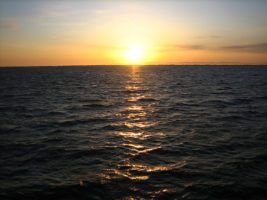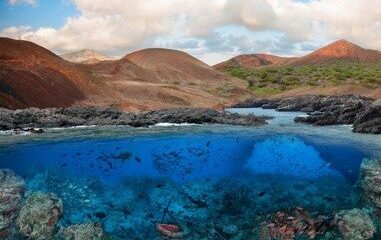

Environment
Charles Clover’s speech at the British Oceans Coalition event: full text
On Wednesday night, MPs Zac Goldsmith, Nick Hurd, Richard Benyon and the Houses of Parliament played host to the Conservative Environment Network’s reception for the Great British Oceans coalition. This is the speech give by Blue Marine Foundation founder and chair, Charles Clover.
I’d just like to say a few words of thanks to Oliver (Letwin MP), on behalf of the Great British Oceans coalition, for ensuring this Conservative manifesto commitment became a reality. I’d like to thank Zac (Goldsmith MP), Nick (Hurd MP), Richard (Benyon MP) and the Conservative Environment Network, particularly Ben (Goldsmith chair of CEN and founder of Menhedin Capital), for their part in that too.
The Blue Belts commitment is the right thing to do. I believe David Cameron said. The two potential large marine reserves mentioned in that commitment, Pitcairn and Ascension, plus South Georgia and the South Sandwich islands, would compare with the creation of the first American national parks in the 19th century or African ones like the Kruger and the Serengeti in the 20th. But these 21st century marine ones will be even larger. They will be achievements on a global scale – and we thank you for them.
As we’ve heard in the news today, the world’s oceans are in crisis. So we see it quite simply as the responsibility of any country with a marine estate to take the recommended measures to protect species and habitats for future generations – particularly a country with 30 times its land area as sea, as Britain has, and 94 per cent of its biodiversity in its overseas territories. We are delighted that the government has committed to doing so and we are proud to support it and the populations of the Overseas Territories in whatever ways we can, with lobbying, expertise and even whatever limited money we in the conservation movement can raise.
This is an example of working together – between MPs, NGOs, the Foreign Office and the government as a whole, look who is in this room – which compares very favourably with action on climate change. We, in the GB Oceans coalition are already working with the population of Ascension to find funds to support marine protection and helping the Pitcairn islanders and the Foreign Office with enforcement.
I think it is important to remember that the manifesto says – as Oliver pointed out – that the point of Blue Belts is to protect precious marine habitats. The manifesto says so several times. It is not just a fisheries management or marine spatial planning exercise. But I think it is also important to stress that we are not looking for a one-size-fits all solution.
The 14 Overseas Territories are all very different. They go from almost unpopulated to very populous, and from those who have no domestic need of commercial fishing to those for whom fishing forms the major source of income. Let us be quite clear about our expectations. We would like to work with OT governments to see large fully protected marine reserves in maybe five overseas territories. But, and I would like to spell this out very clearly, that absolutely does not mean we campaigners want to stop all fishing in an Overseas Territory’s Exclusive Economic Zone.
We do not believe in a simple choice between either sustainable fishing OR very large no-take zones.
We believe a Blue Belt does mean reserves and marine protected areas but this can be compatible with sustainable fishing within the same EEZ. These are the kinds of win-wins – for people and the marine environment – that we are after and are already working on.
In Ascension the population actually wants to protect its rich marine resources which are being poached illegally without any enforcement at present. As they are only 800 people with a marine estate larger than Germany, they simply cannot afford to do this at their own expense. So we have to help Ascension create a new economic model based on marine protection, probably involving sustainable fishing in part of its EEZ and the Atlantic’s largest marine reserve, for turtles, sharks, whales and dolphins, in the rest. At the moment the fishery is closed. There is no policing of any incursions of the Far Eastern long line fleet which may be assumed to be plundering the place and which is suspected of having slave crews. History is repeating itself here for Ascension was the place where the Royal Navy used to intercept slave ships sailing to Brazil which only abolished slavery in 1888. We should be insisting that people wherever they are in our Overseas Territories in the words of Rule Britannia, those in our Overseas Territories, never, never, never shall be slaves.
So I wanted to explain how we are already trying to help the OTs populations to secure their own ambitions for marine protection – and we’d like to do more.
But I would also like to point out that the government needs to look again at a few things which seem no longer compatible with the manifesto commitment.
First, the money. There are very few sources of science or environmental funding for the overseas territories, other than the excellent Darwin fund, which isn’t enough. It would be helpful if DFID funding could support the Blue Belt manifesto commitment as part of the review of aid spending.
Second, Britain need to support efforts to create reserves and MPAs on the High Seas – at the moment Britain’s muted support for those things seems to be at odds with the manifesto commitment.
Lastly we need to shift various obstacles currently in the way of helping to provide OTs with the benefits of marine protection by developing tourism and discovery science. I gather it is called science tourism because scientists often drink a lot, need to stay somewhere and may do it for some time. It can be worth a lot of money to an island.
On Ascension an obstacle the locals find annoying is the failure of the US and UK to open up the Wideawake Airport – named after a loud colony of sooty terns nearby – to civilian flights. That is essential to Ascension’s economy, but it is rather convenient to the military of both countries to keep people out. The Wideawake Agreement, as it is called, ran out a couple of years ago.
Given the commitment of both President Obama, John Kerry, David Cameron and Oliver Letwin to marine reserves, that will no longer do. It is time to wake up and sign the Wideawake Agreement.


 Features11 months ago
Features11 months agoEco-Friendly Cryptocurrencies: Sustainable Investment Choices

 Energy11 months ago
Energy11 months agoThe Growing Role of Solar Panels in Ireland’s Energy Future

 Energy10 months ago
Energy10 months agoGrowth of Solar Power in Dublin: A Sustainable Revolution

 Energy10 months ago
Energy10 months agoRenewable Energy Adoption Can Combat Climate Change




























